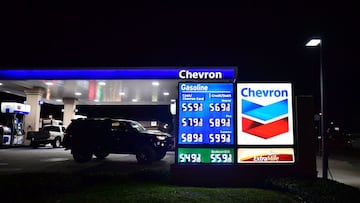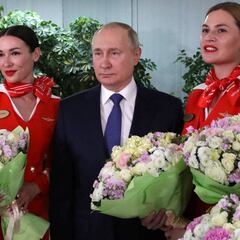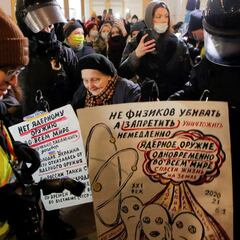Why does the price of gasoline rise with the Russia and Ukraine war?
The United States has imposed tough economic sanctions on Russia for the invasion of Ukraine but that has prompted a global surge in fuel prices.


The national average for a gallon of gasoline hit $4 on Sunday for the first time in more than a decade. AAA reported that the average across the country hit $4.009, an increase of 40 cents in the past week.
Russia’s invasion of Ukraine has fuelled a sudden surge in the price of gasoline, which compounds the already-high prices brought about by inflation.
Patrick De Haan from fuel-savings app GasBuddy has warned that the national average could reach $4.10 by Tuesday and could exceed the national record high of $4.11 by the end of the week.
The national average for gasoline in the US topping $4/gallon today. The highest price since July 2008 and about 11 cents away from a new all-time high. This country will see new records for gas and diesel in a day or two. pic.twitter.com/22zbPioZOT
— Dagen McDowell (@dagenmcdowell) March 6, 2022
Why has the Russian invasion caused gasoline prices to rise?
The United States has refused to send American troops to Ukraine to fight against Russian forces, preferring instead to levy tough economic sanctions of President Putin in the hope of forcing him to withdraw. However Russia plays a key role in the global gasoline industry.
Gasoline is primarily made using crude oil, a commodity that Russia has huge natural resources of. The imposition of sanctions against Russia negatively affects their export markets but some of that impact is then passed on to the buyers, of which the United States is one of the biggest.
Related news:
- Zaporizhzhia nuclear power plant stable after Russian attack
- What is the NATO Response Force?
- Why the different spelling of the president's name reflect the changing view of Ukraine
When asked out the impact of the sanctions against Russia, Phillip Braun of Northwestern’s Kellogg School of Management explained: “Russia is the third largest supplier of oil in the world, after the U.S. and Saudi Arabia. It produces 12% of the world’s oil supply, including 8% of the US’s supply.”
“The market for oil is global, and the removal of Russia from the global supply chain has and will continue to push the price of oil up,” he added.
Sanctions have not only made Russian oil more expensive but also made the global supply of crude oil, and therefore gasoline, scarcer. Both of these factors have contributed to the gasoline price rise.
What next for gasoline prices?
As mentioned, with no end in sight for the war in Ukraine experts are predicting that the price rises will continue. If the sky-high cost of crude oil remains unchanged, or even rises, in the coming days and weeks the cost of gasoline could become a real headache for consumers.
“The single biggest issue is definitely what’s happening to oil prices,” said Andrew Hunter, senior economist at Capital Economics. “It looks like there’s more pain to come, unfortunately.”
The United States and other member states of the International Energy Agency (IEA) on Tuesday agreed to release 60 million barrels of oil reserves to compensate for supply disruptions following Russia’s invasion of Ukraine.
— BusinessWorld (@bworldph) March 3, 2022
READ: https://t.co/kkFrvraaVE pic.twitter.com/k7lQ0XkwzT
Related stories
This is a reality that President Joe Biden will have to contend with for as long as Russian troops remain in Ukraine and he continues to impose tough sanctions against Russia. The US and 30 other countries have released 60 million barrels of oil from strategic stockpiles in the hope of keeping the cost of gasoline down. It is only the fourth time in history that a coordinated release of this magnitude has occurred.
“A Russian dictator, invading a foreign country, has costs around the world,” Biden said in his State of the Union address, but added that “these steps will help blunt gas prices here at home.”

